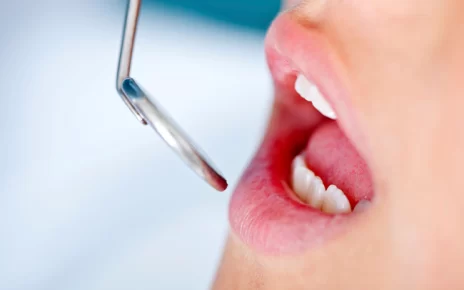Let’s face it—dentistry isn’t exactly the first thing that comes to mind when you think about sustainability. But here’s the deal: the dental industry generates a staggering amount of waste—from single-use plastics to toxic chemicals. The good news? A growing movement of eco-conscious dentists and brands are flipping the script. And honestly, it’s about time.
Why Sustainable Dentistry Matters
Picture this: every year, dental practices contribute millions of tons of waste—gloves, masks, disposable tools, even mercury from fillings. It’s like tossing a small mountain of trash… just for clean teeth. But sustainable dentistry isn’t just about reducing waste. It’s about rethinking everything—energy use, water conservation, and even the materials in your fillings.
Eco-Friendly Dental Practices: What Dentists Can Do
1. Reduce Single-Use Plastics
Those little plastic cups for rinsing? The sterile-wrapped tools? They add up. Forward-thinking clinics are switching to:
- Biodegradable cups (made from bamboo or cornstarch)
- Reusable metal suction tips instead of disposable plastic ones
- Digital impressions to eliminate plastic trays
2. Go Digital (and Paperless)
X-rays used to mean chemical-heavy film processing. Now? Digital radiography cuts waste—and radiation exposure—by up to 90%. Plus, cloud-based patient records mean no more towering stacks of paper files.
3. Choose Non-Toxic Materials
Mercury fillings? Outdated. Many eco-dentists now use:
- Composite resins (mercury-free and tooth-colored)
- BPA-free sealants
- Biocompatible ceramics for crowns and bridges
Eco-Friendly Dental Products for Your Routine
Sure, dentists can make changes—but what about at home? Here’s where you come in. Swapping a few everyday products can shrink your dental carbon footprint fast.
Toothbrushes: Ditch the Plastic
Over 1 billion plastic toothbrushes end up in landfills yearly. Try these instead:
- Bamboo toothbrushes (handle composts, bristles recycle)
- Electric toothbrushes with replaceable heads (less waste over time)
Toothpaste: Skip the Tubes
Most toothpaste tubes aren’t recyclable. But now you’ve got options:
- Toothpaste tablets (chew, brush, zero waste)
- Glass-jar toothpastes (just scoop a pea-sized amount)
- DIY pastes (baking soda + coconut oil—though check with your dentist first)
Floss: The Sneaky Plastic Problem
Traditional floss is nylon coated in petroleum wax. Yikes. Eco-alternatives include:
- Silk floss (biodegradable, often in refillable glass containers)
- Plant-based floss (made from corn or bamboo fibers)
The Future of Green Dentistry
This isn’t just a trend—it’s a necessity. Some clinics are even going zero-waste, installing solar panels, or using rainwater for equipment. And brands? They’re stepping up with compostable packaging and cleaner ingredients.
Look, perfection isn’t the goal. But every small switch—whether it’s a bamboo toothbrush or asking your dentist about digital X-rays—adds up. Because at the end of the day, a healthy planet and a healthy smile? They’re more connected than you’d think.





